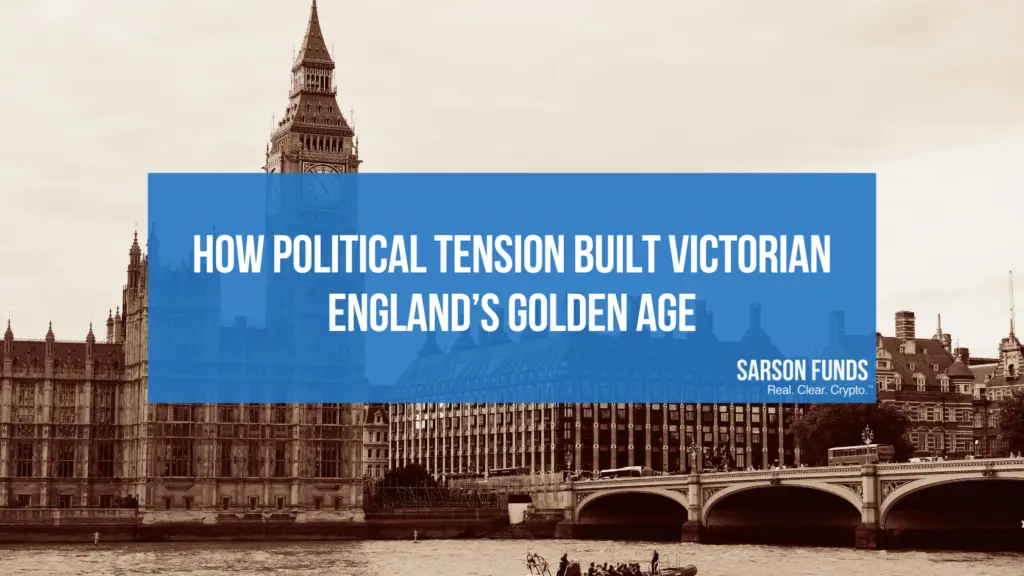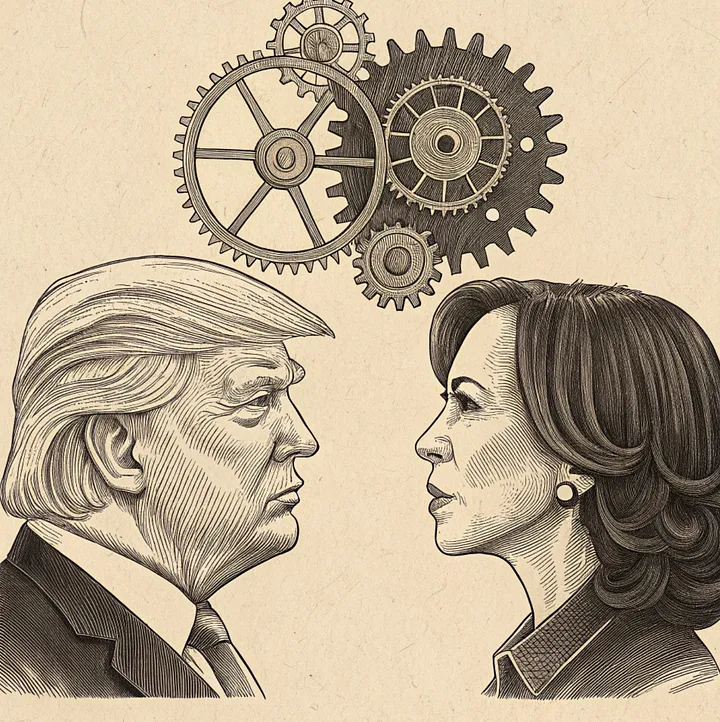
In an era when Americans view political division as a national crisis, a surprising lesson emerges from Victorian England: Sometimes, a nation’s golden age can emerge not despite political tension, but because of it.
The Parallel Century
As Congress grapples with historic levels of polarization and voters report mounting election-related stress, consider Britain circa 1850. The country was split between Conservatives and Liberals, led by two titans who could hardly stomach each other: Benjamin Disraeli, a flamboyant outsider of Jewish descent, and William Gladstone, the austere moralist dubbed “God’s only mistake” by Queen Victoria herself.
Yet from this cauldron of mutual antipathy emerged the most dramatic period of British advancement in history.
“The Victorians didn’t succeed because they agreed with each other,” says Dr. Sarah Richardson, professor of Victorian Studies at Oxford University. “They succeeded because their disagreements forced them to build better solutions.”

The Productivity of Tension
While modern Americans might see echoes of their own political deadlock in Victorian Britain, there’s a crucial difference: The Victorians transformed political tension into productive friction.
Consider the numbers: During this period of intense political rivalry, Britain’s literacy rate soared from 60% to 95%. Real wages increased by half. The railway network tripled. London became the world’s financial capital, handling more than 30% of global trade finance.
But how?
The Secret Sauce
The answer lies in what historians now call “productive antagonism.” When Disraeli’s Conservatives pushed through the Public Health Act of 1875, Liberal opposition forced them to include stronger local oversight. When Gladstone’s Liberals proposed education reform, Conservative resistance ensured traditional values weren’t entirely abandoned.
“It was like a national game of chess,” says Dr. James Morton, author of “Victorian Political Thought.” “Each side had to anticipate the other’s objections, leading to more robust policies.”
Today’s Echo
As America faces its own period of intense division, with the 2024 election promising to be one of the most contentious in history, the Victorian example offers an intriguing possibility: What if our political tensions could be similarly channeled?
Recent Vanderbilt University research shows the U.S. Unity Index at historic lows, with Congressional polarization reaching new extremes. Yet the Victorian period suggests that division itself isn’t the problem — it’s how we handle it.
The Way Forward
The Victorian England’s Golden Age model offers several lessons for our polarized age:
- Opposition isn’t obstruction when it leads to better solutions
- Political rivalry can drive innovation rather than paralysis
- Lasting progress often emerges from contested ground
“The key difference,” notes Dr. Morton, “is that Victorian politicians understood they were playing a long game. Today’s instant-gratification politics makes that harder.”
A Different Lens
As Americans fret about political division — with over 70% reporting election-related stress in recent surveys — perhaps we’re asking the wrong question. Instead of wondering how to eliminate political tension, we might ask how to make it productive.
The Victorian England’s Golden Age never achieved political harmony. What they achieved was something more valuable: a system where political tension generated progress rather than paralysis.
In today’s America, where every disagreement can feel like an existential crisis, that might be a lesson worth remembering. Sometimes, as the Victorians proved, a nation’s finest hours come not when its leaders agree, but when they disagree productively on a reasonable path forward.
Disclosures: Sarson Funds, Inc. is a third-party marketing company and does not directly manage assets or provide investment advice. This information is for educational purposes only and is not intended as investment advice. It is recommended to consult a professional financial advisor before making any investment decisions. Past performance does not indicate future results. The opinions expressed here are solely those of the authors. Therefore, please consult with an investment advisor before making any investment decisions or have them contact Sarson Funds directly at [email protected].








